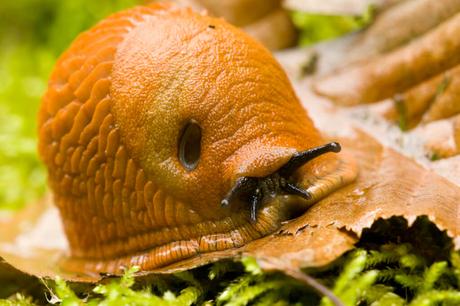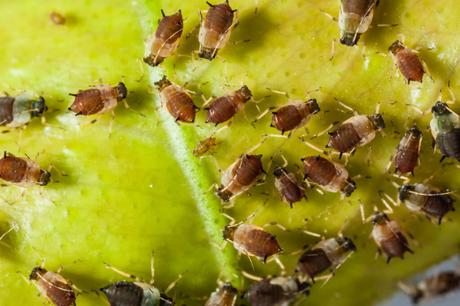The pandemic forced many of us to reassess our lives and some of us turned to our gardens as a means of escapism. Since then, the internet has become the number one resource for newbie gardeners.
Are you looking to start a new hobby and interested in finding out more about gardening? Then, before you can have a garden full of blooming flowers and fresh vegetables you need to start with the basics.
So, this article is here to help you get ahead start so you can begin the magical journey of becoming a gardener.
Let's start with getting to know your garden or other space where you'll be planting...
Get Familiar With Your Garden Space
Whether you have a whole plot of land that you can start planting on or if you own a city apartment and want to rent an allotment or grow in your home then you need to assess the area. Is it south facing? North facing?
Determining the direction of the light will help you plan where to place your crops and how much sun exposure they will have. As well as observing the light, you should also take note of the soil if you have an outside area.
To do this, you can do a simple soil test. A great way to test your soil at home is to take a sample and squeeze it in your hand. Does it stay together or fall apart? You can also dig a hole and pour in some water to observe how long it takes to drain.
The last thing to try is taking a PH test. You can easily buy a kit online or at your local store and use it in your soil.
Preparation Is Key
Before you head to the gardening centre or order seeds online you should sit down with a notebook and plan out your garden area. If you just jump straight in without considering the layout you might regret it later.
A common misconception is that you can just plant a few seeds and throw together random crops, but in reality, it takes careful consideration to get the right growing conditions for each of your plants.
Here is a list of basic requirements for your first vegetable garden:
- Measure space: 10 by 10 feet to begin
- Prepare the soil, take a test for PH, and remove debris
- Pick you seeds
Easy Vegetables to Grow as a Beginner
When you're first starting out as a gardener it's a good idea to pick easy vegetables to grow. The most important thing is that you are cautious about how many seeds you buy. The last thing you want is to have to throw seeds away because you don't have enough space.
If you want to begin growing inside you can easily grow salad crops in boxes or growing bags as long as you have access to a windowsill. However, if you do plan on planting crops in a garden then you should make extra room for space between vegetables.
Have a look at the following list of beginner vegetables and pick your favourites:
- Beetroot
- Bush tomatoes
- Salad leaves (rocket, oak-leaf lettuce, Japanese, Chinese, etc.)
- Potatoes
- Radish
- Peas
- Cayenne chillies
- Courgette
After you've decided on what seeds to grow you might be thinking "What do you do with the seeds?", if you've never tried gardening before then you'll need to follow a step-by-step guide to avoid any beginner mistakes that could put you off trying again.
Everyone knows how disheartening it is when you start a new hobby and fail at your first attempt. So, don't worry, we're going to give you some tips to get you started and have the best change of success as a gardener!
Learning to Plant From Seeds to Crops
By this part of the article, you already know that you need to prepare the soil and choose your seeds. The next step is planting your seeds at the correct depth. A general rule in the gardening world is to plant seeds three times the size of your seed.
Although some seeds like lettuce seeds might need to germinate before being planted. After your seeds are safely in the ground or in their container you have to water them frequently. Even though keeping your soil moist is crucial to growth, you must avoid overwatering.
Most new gardeners get anxious and tend to overwater their crops. So, if there's anything you remember from this article it's this: water in moderation.
As well as watering, it's also good to keep an eye on your crops in case they need fertilizer. You can normally add fertilizer if you feel like your crops aren't growing quickly. The main thing to realise about nurturing your crops is they need constant care and attention.
You have to be certain you have the time and energy to commit to your crops otherwise it might end up being too time-consuming. However, if you are ready to take this dedicated step towards gardening then you'll love the process of watching your seeds grow to fresh vegetables.
Common Pests to Look Out For
No matter how careful you are when planting your crops, you'll probably run into a few common pest problems during your first year. This is perfectly normal if you've never had a garden before or spent a lot of time in nature.
So, what are the most common pests in gardens?
Slugs

As your crops share the same habitat as other wildlife, it's only natural that you might get a few animal visitors. For example, slugs love to explore crops in gardens. The fastest way to minimize the appearance of slugs is by using organic slug pellets.
It's vital that you do your research in your local garden store or online to find the organic pellets. Otherwise, pellets full of chemicals might ruin your crops or kill other animals. The aim of pellets is to re-direct slugs and put them off not to kill them.
However, if you don't want to use pellets you can always choose to place copper rings around your crops. This might be a more natural choice for you if you prefer not to use pellets.
Aphids

Aphids, otherwise known as greenfly or blackfly, are tiny bugs that like to eat away at plants and vegetables. There are over 500 different varieties of aphids so there's a high chance that you'll have to deal with them at some point.
If your garden is outside, birds will naturally kill them off. But, if your want to grow inside you should make sure to keep an eye out for growing spots of aphids. It's also a good idea to check your outside area as well.
You can easily get rid of groups of aphids with your hand or a piece of paper towel. If there is any sign of sticky liquid or ants running around your crops then you know you have aphids. So, if you spot either of these signs you should take a closer look!
Besides common pests, there are also other ways you might ruin your crops.
Easy Mistakes to Make as a Beginner
Have you got a notebook nearby? Then, you might want to write down these common mistakes that most beginners make when it comes to gardening.
Here is a list of easy mistakes:
- Incorrect spacing between crops
- Not considering height growth
- Using chemical fertilizers
- Forgetting a top layer of soil
- Planting seeds at the wrong season
- Not preventing pests in advance
- Overcrowding
- Giving up too soon
Most of these mistakes can be avoided by following the previous steps mentioned in this article, but some might be harder to avoid. For instance, giving up too soon after a first bad experience.
In case you're feeling nervous about planting vegetables or need some extra motivation to get you excited it could be useful to do some reading about gardening beforehand. It's never too late to learn more about a new hobby when you first begin...
Best Books for Beginner Gardeners
Books can help us learn about the world, people, and cultures. So, who says you can't learn about gardening from books too?
If you like reading and want to research more about gardening then you can take a look at these books:
The next time you feel like picking up a book, grab one of these and enjoy learning about the world of gardening. We guarantee you'll love it!
